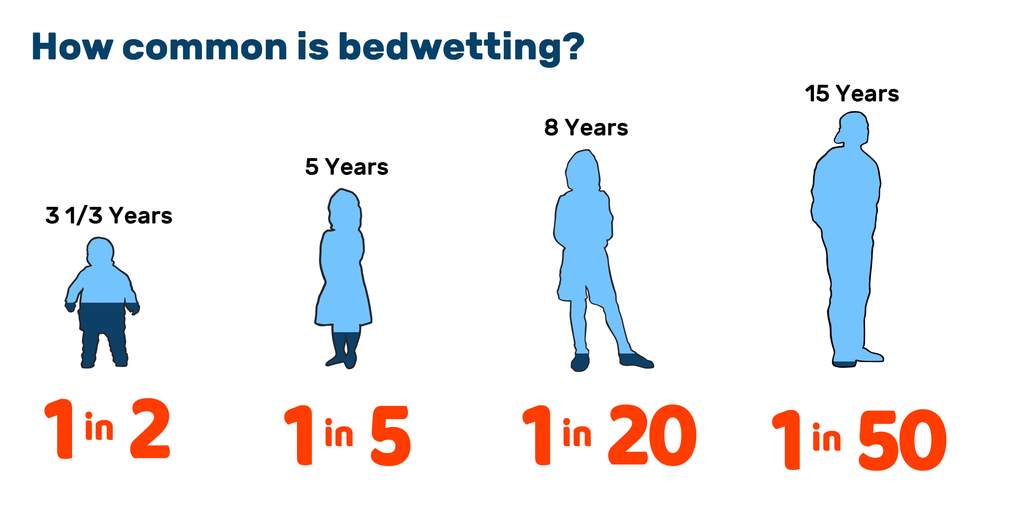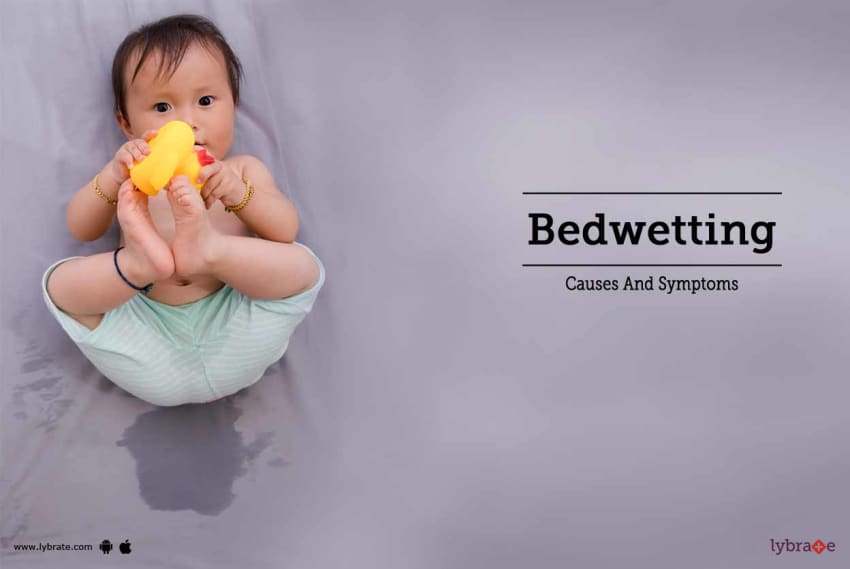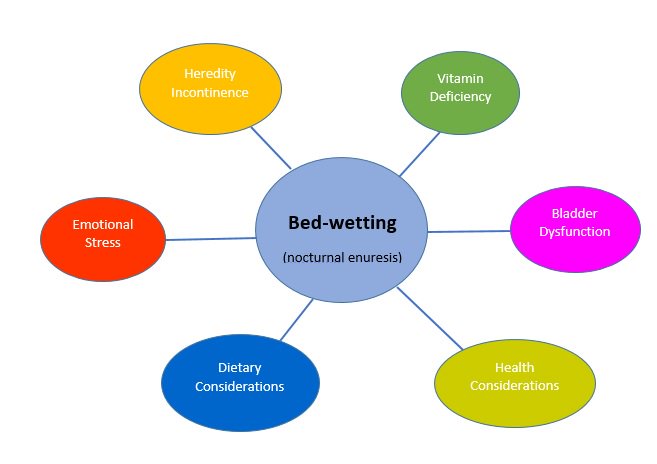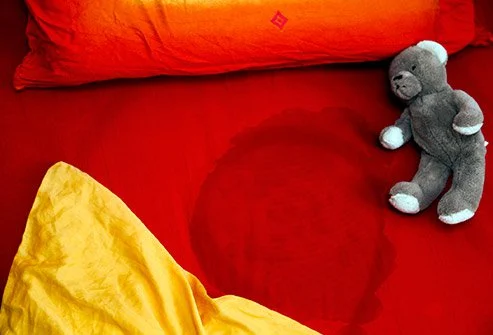*Bed-wetting — also called nighttime incontinence or nocturnal enuresis is involuntary urination while asleep after the age at which staying dry at night can be reasonably expected. Soggy sheets and pajamas and an embarrassed child are a familiar scene in many homes. But don't despair. Bed-wetting isn't a sign of toilet training gone bad. It's often just a normal part of a child's development. Generally, bed-wetting before age 7 isn't a concern. At this age, your child may still be developing nighttime bladder control.*

Bed-wetting
Bedwetting is involuntary urination while asleep after the age at which bladder control would normally be anticipated. The medical term for this condition is “nocturnal enuresis.” Primary Nocturnal Enuresis (PNE) is when a child has not yet stayed dry on a regular basis. Secondary Nocturnal Enuresis is when a child or adult begins wetting again after having stayed dry.
Bedwetting is the most common pediatric-health issue. Studies show that parents become worried too quickly because they expect children to stay dry too early. Most girls can stay dry by age six and most boys stay dry by age seven. By ten years old, 95% of children are dry at night. Studies place adult bedwetting rates at between 0.5% to 2.3%.
If bed-wetting continues, treat the problem with patience and understanding. Lifestyle changes, bladder training and sometimes medication may help reduce bed-wetting.
Symptoms
Most kids are fully toilet trained by age 5, but there's really no target date for developing complete bladder control. Between the ages of 5 and 7, bed-wetting remains a problem for some children. After 7 years of age, a small number of children still wet the bed.
When to see a doctor
Most children outgrow bed-wetting on their own but some need a little help. In other cases, bed-wetting may be a sign of an underlying condition that needs medical attention.
Consult your doctor if: • Your child still wets the bed after age 7 • Your child starts to wet the bed after a few months of being dry at night • Bed-wetting is accompanied by painful urination, unusual thirst, pink or red urine, hard stools, or snoring.
Causes
No one knows for sure what causes bed-wetting, but various factors may play a role
• A small bladder. Your child's bladder may not be developed enough to hold urine produced during the night. • Inability to recognize a full bladder. If the nerves that control the bladder are slow to mature, a full bladder may not wake your child — especially if your child is a deep sleeper. • A hormone imbalance. During childhood, some kids don't produce enough anti-diuretic hormone (ADH) to slow nighttime urine production. • Urinary tract infection. This infection can make it difficult for your child to control urination. Signs and symptoms may include bed-wetting, daytime accidents, frequent urination, red or pink urine, and pain during urination. • Sleep apnea. Sometimes bed-wetting is a sign of obstructive sleep apnea, a condition in which the child's breathing is interrupted during sleep — often due to inflamed or enlarged tonsils or adenoids. Other signs and symptoms may include snoring and daytime drowsiness. • Diabetes. For a child who's usually dry at night, bed-wetting may be the first sign of diabetes. Other signs and symptoms may include passing large amounts of urine at once, increased thirst, fatigue and weight loss in spite of a good appetite. • Chronic constipation. The same muscles are used to control urine and stool elimination. When constipation is long term, these muscles can become dysfunctional and contribute to bed-wetting at night. • A structural problem in the urinary tract or nervous system. Rarely, bed-wetting is related to a defect in the child's neurological system or urinary system.*
Risk factors
Bed-wetting can affect anyone, but it's twice as common in boys as in girls. Several factors have been associated with an increased risk of bed-wetting, including:
• Stress and anxiety. Stressful events — such as becoming a big brother or sister, starting a new school, or sleeping away from home — may trigger bed-wetting. • Family history - If one or both of a child's parents wet the bed as children, their child has a significant chance of wetting the bed, too. • Attention-deficit/hyperactivity disorder (ADHD) - Bed-wetting is more common in children who have ADHD.*
Complications
Although frustrating, bed-wetting without a physical cause doesn't pose any health risks. However, bed-wetting can create some issues for your child, including
• Guilt and embarrassment, which can lead to low self-esteem • Loss of opportunities for social activities, such as sleepovers and camp • Rashes on the child's bottom and genital area — especially if your child sleeps in wet underwear*
HOMEOPATHY FOR BEDWETTING
Homeopathy treats the person as a whole. It means that homeopathic treatment focuses on the patient as a person, as well as his pathological condition. The homeopathic medicines are selected after a full individualizing examination and case-analysis, which includes the medical history of the patient, physical and mental constitution, family history, presenting symptoms, underlying pathology, possible causative factors etc. A miasmatic tendency (predisposition/susceptibility) is also often taken into account for the treatment of chronic conditions. A homeopathy doctor tries to treat more than just the presenting symptoms. The focus is usually on what caused the disease condition? Why ‘this patient’ is sick ‘this way’. The disease diagnosis is important but in homeopathy, the cause of disease is not just probed to the level of bacteria and viruses. Other factors like mental, emotional and physical stress that could predispose a person to illness are also looked for. No a days, even modern medicine also considers a large number of diseases as psychosomatic. The correct homeopathy remedy tries to correct this disease predisposition. The focus is not on curing the disease but to cure the person who is sick, to restore the health. If a disease pathology is not very advanced, homeopathy remedies do give a hope for cure but even in incurable cases, the quality of life can be greatly improved with homeopathic medicines.





